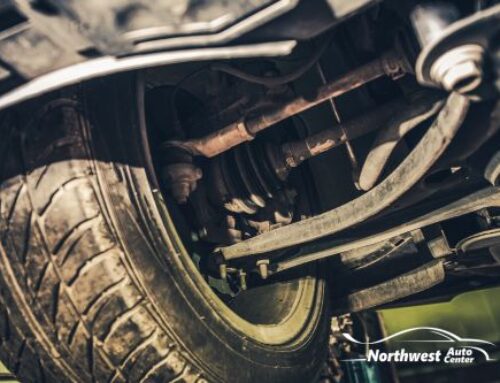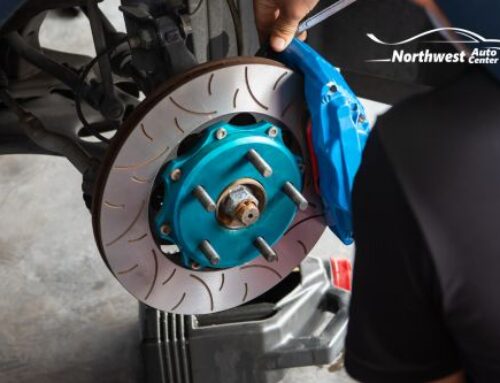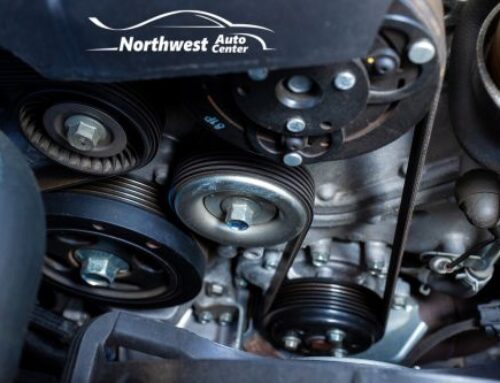Brakes are one of the features you rely on the most while driving down the road. And for good reason! If your brakes fail you, then your car is un-drivable. This is why it matters so much that you do not abuse your brakes, and take good care of them. Brakes work by having two surfaces causing friction when you press them together, by pushing on the brake pedal. This friction converts energy to heat. Because brakes function using friction, they can wear down over time. Brakes can last 35,000 miles and many times, much longer depending on your driving habits. There are things for preserving your brakes and it is beneficial to your wallet to make them last as long as possible.

Tips for Preserving Your Brakes
1. Slow Down
The faster you drive on the road the harder it will be on your brakes when you need to slow down. Driving faster forces you to use your brakes more often as well, since you will have to brake when you approach slower cars, even when passing them.
2. Keep Your Car Light
Any extra weight in your car will put extra weight and therefore strain on your brakes. If you regularly haul trailers you should get your brakes checked sooner than the average vehicle. Even any extra things in the car can weigh it down. Don’t store things in your car long term. Unload things as soon as you do not need them in the car anymore.
3. Don’t Slam the Brakes
Slamming on your brakes prematurely wears down your brake pads/shoes. Drive slower and don’t slam on the brakes, instead braking smoothly and gradually. When you can, allow your car to coast to slow down. If you pay attention to the flow of traffic, you are sometimes able to coast to a slower speed before pushing the brake pedal. This saves a lot of energy and wear and tear on your brakes.
A common occurrence is a driver speeding up when they approach a stop light, only to have to slam on the brakes when they get to the light. Avoid this if you see a red light ahead. This is hard on your engine and your brakes and will not benefit you at all since you have to stop anyway.
4. Drive With One Foot
Never drive with both feet on your pedals, one on your gas and one on your brake pedal. This can cause you to tap your brakes more often than necessary over extended periods of time. You should get in the habit of driving with one foot, so you are not accidentally pressing both pedals repeatedly, helping you in preserving your brakes.
5. Don’t Ride Your Brakes
When going downhill or in heavy traffic, instead of riding the brakes the whole time, slow down to a lower gear and then you will only have to use the brakes as your speed begins to increase. If you ride your brakes downhill they will wear out much faster. This is also unsafe because riding your brakes can cause them to overheat, and possibly fail to function.
6. Be Aware When You Drive
Be aware when you are driving, this will prevent slamming on your brakes, causing unnecessary wear on them. Pay attention to the flow of traffic and any construction coming up or possible accidents. Know the route you are taking so you are prepared to take your exit or make your turn when needed instead of braking quickly to get over to the exit lane or turning sharply while braking. Being aware while driving will not only save your brakes but it will also be easier on your engine, extending the life of your vehicle. And it is safer for you, and any passengers in your car.
7. Regular Maintenance
Even if you do take care of your brakes, they will wear out over time just from normal driving. Generally, you should have your brakes checked every 20,000 – 30,000 miles. A competent shop should check your brakes whenever they change your engine oil. You can also check your owner’s manual for a mileage recommendation for your brakes. If you hear screeching noises when you press the brake pedal, or you feel that the brakes are not working as well, take them into your mechanic to get them checked. It is not worth risking brake failure so if you have any doubt at all about the condition of your brakes, take your car to a trusted mechanic.






Leave A Comment
You must be logged in to post a comment.